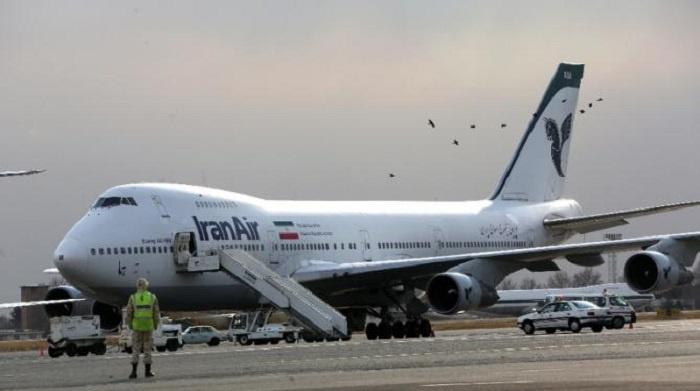The Iron Is Hot for Iran’s Air Fleet

The first Iran Aviation Summit organized by the CAPA Centre for Aviation Consultancy has proven to be rather surprisingly fruitful for the hosts. The number of potential plane orders Iran is set to place, after the nuclear sanctions were removed, rose during the first day of the conference, as a senior official told foreign delegations that Iran was closing on a deal for 127 jets from Airbus, compared with earlier estimates of 114 aircraft.
The deal for 127, mainly new, aircrafts Iran hopes to complete this week also includes 16 A350 jets, 8 Airbus Group SE A380 superjumbos, and 45 A320 Airbuses, Asghar Fakhrieh Kashan, a deputy transportation minister, said in an interview on the sidelines of the aviation conference in Tehran, Reuters reported.
Iran says it has struck a provisional deal with Europe's Airbus (AIR.PA) to buy eight A-380 superjumbo planes with deliveries of the double-deckers starting around 2019, the deputy transportation minister told Reuters on Sunday.
If confirmed, a deal of such scales would be worth more than $20 billion at list prices, though Iran will receive hefty discounts since its purchase includes a mixture of new jets and end-of-the-run models available for bargains, financiers said.
Fakhrieh Kashan said Iran is ready to buy at least 100 passenger jets from world giant aerospace manufacturers. Iran is interested in regional aircraft including Mitsubishi's MRJ and Canada's Bombardier CSeries and has had some contact with both companies, he added.
Mr. Kashan said Iran also may buy 40 turboprop short-haul planes from ATR, the joint venture between Airbus and Italy’s Finmeccanica SpA. Deliveries would unfold this year and the next, he said.
Abbas Akhoundi, the Iranian Transport and Urban Planning Minister, has vowed to eliminate brokers who have thrived through helping Iran evade the sanctions to buy aircraft and parts in the black market. He told investors that anyone who approached them claiming to represent the government in negotiations would be “lying”, according to Deutsche Welle.
“We need short-, middle-range and longer-range airplanes,” Mr. Akhoundi told the summit. Aviation would be pivotal to reviving the country’s tourism industry, he said.
Though Iran has expressed openness to purchases from Boeing, the American multinational has said: “There are many steps that need to be taken should we decide to sell airplanes to Iran’s airlines. For now, we are assessing the situation.” Iranian sources say Boeing representatives failed to participate in the summit following the enforcement of tighter Visa Waiver Program rules which have complicated visits to Iran.
Clearly, Iran will not be the only beneficiary. The order would be a big boost for Airbus, which has struggled to find buyers for its flagship plane since many airlines have shied away from the jet, which has a list price of $432.6 million. However, according to Reuters, delegates believe Sunday’s barrage of announcements may also serve to encourage giant U.S. planemaker Boeing that seems to be concerned with domestic oppositions regarding the JCPOA by the Congress and the hawks.
Iran said it would give priority to developing flag carrier Iran Air, but would also support private carriers. The private sector is already in talks with Brazil's Embraer and Russia's Sukhoi. Iran's Kish Air is talking to Airbus about buying six of its A321 jets and is also studying possible purchases from Brazil's Embraer, the Kish Air chief executive told Reuters on Sunday.
“We are talking to Airbus about six A321s. Our goal is 10 of them,” Kish Air CEO Sadat Akhavi said. The airline is also interested in aircraft from Brazil's Embraer, he added, speaking on the sidelines of the aviation conference in Tehran.
The aircraft would be financed by selling them onto leasing companies and renting them back, he said, referring to a common form of aircraft funding.
An article published in the Wall Street Journal vividly illustrates how vehemently other European airlines are considering a quick return. Dutch KLM’s Chief Executive Pieter Elbers says the airline is also considering restarting services to Tehran. Air France last year announced plans to resume services to and from Tehran. British Airways is actively considering starting flights to the Iranian capital, Willie Walsh, chief executive of the airline’s parent, International Consolidated Airlines Group SA, said last week.
Several airline bosses, however, warned that the growth plans depended on building new infrastructure and boosting training. Akhoundi said Tehran plans to award a contract soon for the expansion of Tehran's international airport. Mr. Akhoundi said Iran also plans to spend $250 million to upgrade its air-traffic management systems.
Iran’s airspace had become busier even ahead of sanctions relief. Fighting in neighboring countries has driven airlines to fly routes over Iran. Mr. Akhoundi said the country had opened new corridors for flights and would work to assure a high degree of safety of its airspace.
"It's a really exciting time, there's never been a situation like this," aviation consultant Peter Harbison told the AFP news agency. “A whole array of different aviation services and new jobs are obviously going to be created.”
Iran could place 400 to 500 plane orders in the coming years, said Airbus Chief Executive Tom Enders last week.
Iran hopes to boost tourism to a part of substantial plans to revive its long-suffering economy. It says it wants to acquire 400 long- and mid-range and 100 short-range planes. Only nine of the country's 67 airports are even operational. Years of sanctions, some imposed in the wake of its revolution in 1979 rather than over the country’s nuclear program, have left Iran with one of the world’s oldest aircraft fleets, which it is eager to modernize, wrote the Wall Street Journal.
Despite the bright horizon, business with Iran needs to be considered with caution. It ranked 119th out of 189 economies in the World Bank’s ease-of-doing-business index, which measures obstacles posed by bureaucracy, slow public services and taxation. It finished 136th of 175 countries in the corruption perceptions index compiled by Transparency International.

